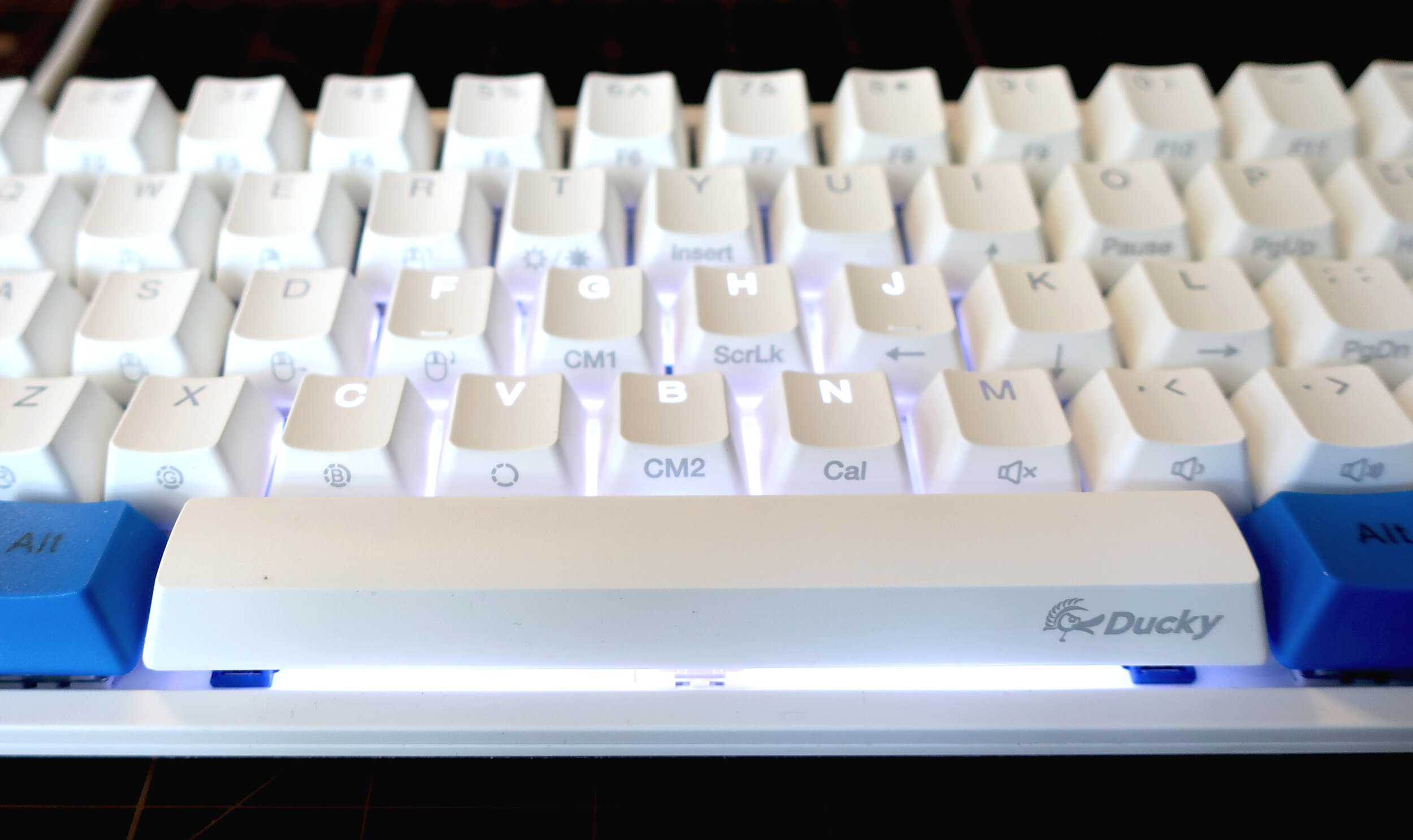Tools for writers: mechanical keyboard
I consider my keyboard a work tool. When it comes to writing, especially with typewriters, I value the aesthetic aspect (feel, sound) as much as the functional one (the act of typing), which is why I have been using a mechanical keyboard for several months now.
Mechanical keyboards are commonly more associated with gaming due to their tactility and durability. My motivation was, however, to improve my typing experience when writing in front of a computer as I write at a typewriter or by hand by choice.
I got my Ducky One 2 Mini Pure White 60% keyboard at www.mechanicalkeyboards.com. Prior to purchasing, I spent weeks watching YouTube channels on mechanical keyboards (TaeKeyboards is my favorite) and comparing the sounds of various switches available on the market, as it was the most important feature for me. I finally decided to go with Kailh BOX brown switches because they are tactile, which means that I feel a bump every time I press a key. Mechanical keyboards come in a variety of shapes and sizes. I went with a simple white frame and a 60% keyboard that is small and fits neatly on a desk, giving me plenty of room to use my mouse.
What I like best about mechanical keyboards is their capacity for customization to provide me with a tool that is tailored to my needs. You can easily change keycaps, switches, set up lightning patterns. I added a few colorful keycaps for a pop of color, but the possibilities are endless. Because the keys light up when typing, I can easily spot a typo before my eye catches it on the screen. I couldn’t care less about the type of keyboard I was using before I became interested in writing and mechanical keyboards. However, once you’ve entered the world of mechanical keyboards, be aware that introducing constant modifications can become addictive. I also love the community that has sprung up around mechanical keyboards, with all of the events and creative content made by keyboard enthusiasts.
Switching to a mechanical keyboard was an easy update that greatly improved my user experience, making the process of writing a lot more enjoyable. Placing it in front of me every day begins a ritual and makes writing a special time. I don't necessarily type as quickly as I do on my laptop keyboard yet, but I do type more attentively and deliberately. When it comes to writing, it's not always about efficiency. The pleasant sound of typing makes even the most dreaded tasks, such as emails, a bit more bearable. It is what drives me to practice my typing skills. I don’t think I could ever go back to using a membrane keyboard. This leads to a conversation about the importance of tools in creative work. Is it more important to focus on the tools or the work itself? I usually advocate for the latter, but I'll take anything that makes the process more enjoyable for the creator.

